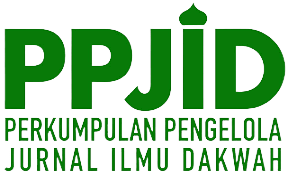Jogjaprov.go.id Website Management in Realizing Good Governance of the Special Government of Yogyakarta Period 2019
DOI:
https://doi.org/10.18196/jicc.v1i1.8Keywords:
Management, Information, Website, Government Public Relations, Good GovernanceAbstract
Disclosure of information becomes an important part of governance to create good governance or good governance. One of the efforts of the DIY regional government to realize good governance is through transparent information disclosure. The website jogjaprov.go.id managed by the public relations government of DIY never got the most innovative service website in the year 2019 and the first ranking award of Best smart Governance. Public relations of DIY regional government use the website as one of the information media to implement e-government so that people can access and know the information quickly. As for the management of the website, the public relations of DIY regional Government conducted several stages as follows: searching and collecting content, editing, verification and publication on the website jogjaprov.go.id. Content on the jogjaprov.go.id also has several categories, including infrastructure, economics, society, culture, health, education and tourism. This research aimed to analyze the management of jogjaprov.go.id website in realizing the governance of the special region of Yogyakarta in 2019. The research methods in this study were qualitative descriptive with the collection of data through interviews, observations and documentation. The data validity test was through data triangulation. The results showed that the management of the website underwent a change of task from earlier that manages the Department of DIY Communication and informatics, then now moved to public relations of DIY regional government. It can be noted that the public relations of the DIY regional government have been utilizing the website as an information disclosure media to achieve good governance with one aspect of transparency, but the monitoring and evaluation of website content have not been running quite well. As for the website management of public relations of DIY regional government is done through searching and collecting content, editing, verifying, and publishing on jogjaprov.go.id.
References
Amalia, S. (2016). Mewujudkan Good Governance Melalui Pelayanan Publik. Jurnal Ilmu Politik Dan Komunikasi Jipsi, 21(2), 1–18. https://doi.org/10.31845/Jwk.V21i2.133.
Cutlip, Scoot, M., et al. (2011). Effective Public Relations, Edisi Kesembilan. Kencana.
Erliansyah, B. (2017). Manajemen Pengelolaan Cyber Public Relations dalam Mewujudkan Good Governance Pemerintah Kota Payakumbuh. Jurnal Fisip, 4(2).
Hidayat, D. (2014). Media Public Relations, Pendekatan Kasus Cyber Public Relations Sebagai Metode Kerja PR Digital. Graha Ilmu.
Hidayat, R. (2010). Cara Praktis Membangun Website Gratis. PT Elex Media Kamputindo.
Jack, F. (2006). Menjelajah Dunia Dengan Google. Informatika.
Jogjaprov.go.id. (2020). Jogjaprov.go.id. n.d. from https://jogjaprov.go.id
Moleong, J. L. (2014). Metode Penelitian Kualitatif. PT. Remaja Rosdakya.
Nubatonis, S., Rusmiwari, S., & Suwasono, S. (2014). Implementasi Prinsip- Prinsip Good Governance Dalam Meningkatkan Kinerja Organisasi Pelayanan Publik. Jurnal Ilmu.
Robbins, P., Stephen & Coulter, M. (2012). Manajemen (B. Sabran & W. Hardani, Trans.). Erlangga.
Ruslan, R. (2013). Metode Penelitian Public Relations dan Komunikasi. RajaGrafindo Persada.
Ruslan, R. (2016). Manajemen Public Relations dan Media Komunikasi : Konsep dan aplikasi. PT. RajaGrafindo Persada.
Sari, B. W. N. (2012). Humas Pemerintahan. Graha Ilmu.
Tomuka, S. (2013). Penerapan Prinsip-Prinsip Good Governance Dalam Pelayanan Publik Di Kecamatan Girian Kota Bitung (Studi Tentang Pelayanan Akte Jual Beli). Jurnal Politico, 1(3), 1–15.
Additional Files
Published
How to Cite
License
Journal of Islamic Communication and Counseling is currently licensed under a Creative Commons Attribution-ShareAlike 4.0 International (CC BY-SA 4.0)





